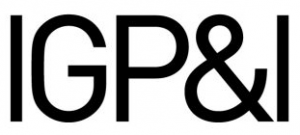Despite the escalation of the conflict between Israel and Hezbollah on the Israeli-Lebanese border, all major ports in the two countries are reported to operate normally. However, the situation remains volatile and ship operators are encouraged to monitor developments attentively and assess all port calls in the region on a case-by-case basis.

Israel and Lebanon’s port situation
Published 03 October 2024
Ports situation as of 3 October 2024
Gard's local correspondents in Israel and Lebanon report that all ports, including Haifa and Beirut, are operating normally. However, the Lebanese correspondent advises vessels to avoid calling at the country’s southernmost ports, such as Sidon, Tyre and Jiyeh as well as Zahrani Oil terminals. It should also be noted that Israeli authorities have implemented strict entry procedures for vessels carrying some hazardous materials.
While there are currently no reports of maritime facilities and commercial vessels being deliberately targeted during the Israel-Hezbollah conflict, the risk of collateral damage has increased. Following Iran's recent missile attack on Israel, and likely Israeli reprisal, the security situation in the region may deteriorate even further.
Advice is likely to evolve quickly
The security situation in Israel, Lebanon, and surrounding sea areas remains volatile and we strongly recommend ship operators and their masters trading to the eastern Mediterranean Sea region to carefully assess the risks involved in all port calls on a case-by-case basis and:
make frequent checks with local sources of information, e.g. vessel’s agents, local authorities, and/or Gard’s correspondent, to obtain the most up-to-date and reliable security information available at any given time,
follow advice received from flag administrations and port authorities regarding applicable ISPS security levels, and
review relevant security and contingency plans and apply them accordingly.
Prior to getting underway, operators and managers should develop plans for responding to GPS disruptions that affect safe navigation, and ensure that seafarers on vessels heading towards Israel are aware of any imminent security threats in the region. Decisions on crew shore leave should always be taken with the prevailing local security situation in mind.
As both Israel and Lebanon are included in the Joint War Committee’s (JWC) Listed Areas for Hull War, Piracy, Terrorism and Related Perils, we also recommend conferring with the vessel’s war insurer well in advance of arrival at any Israeli port.
We are grateful to our correspondents M. Dizengoff & Co., Harpaz P&I and Maurice G. Mouracade & Co. for assisting with the above information.
Geopolitical tensions in the Middle East
The Israel-Gaza conflict has impacted not just the security situation in Israeli ports. Vessels sailing in the Eastern Mediterranean Sea are warned to exercise caution, and threats related to the geopolitical tensions in the Southern Red Sea, and more recently the Persian Gulf, regions have escalated even further. This is particularly true for vessels with links to Israel, however, vessels linked to the United States, United Kingdom and other countries involved in Operation Poseidon Archer are also at risk. Furthermore, the threat of collateral damage or direct hits on any merchant vessel in the region remains high.
For more information on the regional impacts, please visit our hot topic page on the subject.





